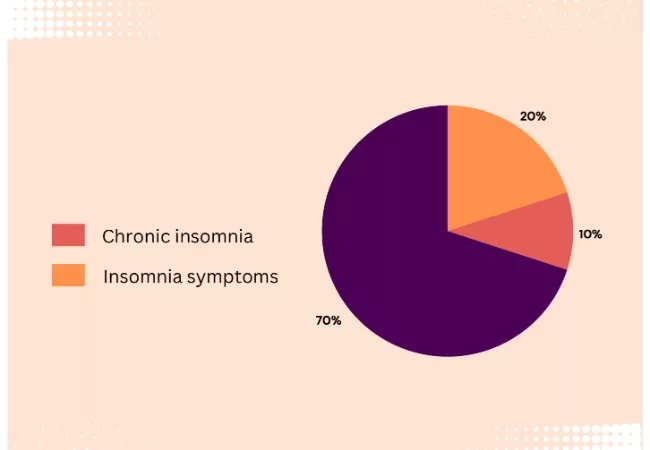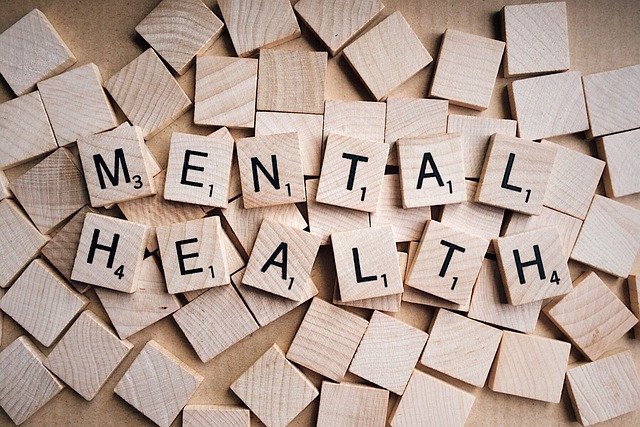Sleep is something most people take for granted. It gives us the energy and refreshment we need to tackle our daily tasks. And also sleeping is a way to get access to our subconscious mind ( yes, I am talking about SATS which utilize the transition into sleep or the drowsy state to ingrain new beliefs and thought patterns into our subconscious, enabling us to manifest what we desire).
This post is for those who struggle with sleeping, finding it seemingly impossible to fall asleep and thus missing out on such a significant and effective method in the law of attraction.
During my research on how to fall asleep effortlessly, I discovered the Effortless Sleep Method. What is the effortless sleep method? You know I like everything with the word “effortless”, so i have to try it out.
The effortless sleep method worked wonders for me, as well as for many others. So, let’s delve into it.

What Is The Effortless Sleep Method?
The American Academy of Sleep Medicine (AASM) states that around 30% of American adults have symptoms of insomnia, with roughly 10% experiencing chronic insomnia. If you have trouble falling asleep at least three times a week, and it lasts for more than three months, then you are likely experiencing chronic insomnia.
For the average person, there’s probably been a period in life when falling asleep was a struggle. It could be due to stress, worries, medical conditions, side effects of medications, or lifestyle factors.

Sleep is a significant industry, valued at around £30bn globally and growing consistently by 8% each year, according to management consultants McKinsey. From luxury mattress manufacturers to herbal remedy producers and self-help authors, many are constantly seeking new ways to address sleep issues.
Whatever degree of insomnia you’re dealing with, the Effortless Sleep Method can help.
While traditional methods often involve expensive products and doctor visits, the Effortless Sleep Method offers a different, simpler approach that doesn’t require buying specific products or going through complicated treatments.
Created by Sasha Stephens, the Effortless Sleep Method aims to resolve sleep problems NATURALLY, without relying on medication or complex techniques.


Stephens herself struggled with insomnia for 15 years, trying various therapies, yoga, and medications without lasting success. It wasn’t until she attended a retreat with friends, where she was forced to share a room, rise early, and stay busy during the day, and suddenly she found it much easier to fall asleep. She started to take time to reconsider her habits, lifestyle, and also her beliefs about sleep, and that’s how the Effortless Sleep Method was born.
The Effortless Sleep Method comprises two main components: addressing common mistakes (or misunderstandings) about insomnia and the 12 promises designed to help overcome insomnia. We will discuss each component sequentially.
Common Mistakes About Curing Insomnia
Mistake #1: Taking Sleeping Pills
Do sleeping pills work? In general, yes.
Sleeping pills help induce drowsiness and promote sleep. However, the significant issue with sleeping pills is that we can become accustomed to them over time, and their effectiveness diminishes. Additionally, sleeping pills come with various side effects, such as daytime drowsiness, dizziness, and dependency if used for extended periods.
A significant point highlighted by the Effortless Sleep Method, as mentioned by Sasha Stephens, is that sleeping pills lead us to believe that we need external factors, such as medication or doctors, to be cured.
This psychological effect caused by using sleeping pills might be more dangerous than you might think. Even if we do fall asleep, we attribute it to the pills rather than our own abilities. Consequently, we may find ourselves needing increasingly higher doses of pills to sleep, forgetting that as humans, we can naturally fall asleep easily and effortlessly.
As per the quote from the book “The Effortless Sleep Method”: “In giving up responsibility, you give up your power.”
Mistake #2: Labeling yourself as an insomniac.
This is another way to reinforce the idea that you have a medical condition and must depend on pills.
The core value of the Effortless Sleep Method is to fall asleep naturally, as falling asleep is meant to be easy and effortless. That’s why don’t keep trying to tell yourself that you are having trouble sleeping.
Mistake #3: Being desperate and trying to hard
Being desperate is common among insomnia patients, who may try every medication and method available.
While some methods may offer temporary relief, they often lose effectiveness over time.
Chronic sleeplessness is primarily a mental problem, so a mental solution is essential. Being desperate and trying too hard to cure the sickness only serves to make it stronger.
Mistake #4: Thinking that your problem is unique.
This mindset can lead to the belief that it’s incurable. In fact, your sleep problem is not unique.
Some people even think they haven’t found the specific medication or sleeping method for them. They believe they haven’t found the right treatment or the right supplements specific to their conditions. There is no lack of supplements or substances that you need. There is no “broken sleep mechanism.”
We are all born with the same ability to sleep.
Poor sleep habits and negative beliefs are enough to override the natural sleep response. Falling asleep is not something that requires the assistance of a pill or treatment; it’s not doing something. Remove the habits, and you will fall asleep automatically.
These mistakes are mentioned here to help you eliminate the negative beliefs you may have about sleep. Once you clear yourself of those negative beliefs, it will pave the way for you to apply the 11 promises in the next part and get results in improving your sleep.
11 promises to help you conquer insomnia.
The second part of the answer to the question “What is The Effortless Sleep Method?” is 11 promises to help you conquer insomnia in a natural way.
Promise 1: Spend less time in bed
Sasha Stephens, author of the book “The Effortless Sleep Method,” claims that 90% of all insomniacs can be cured by simply spending less time in bed. Yes, it might sound a little bit too simple and common sense, but do you really apply it to your life?
Spending time on beed can unintentionally train your brain to associate the bed with being awake rather than asleep. This helps ensure that you only go to sleep when you are really tired, which will help you fall asleep easily. You can try to stay active during the day, move around more; doing 20 minutes of exercise every day is proven to improve your sleep quality.
Promise 2: Get up and do something when you can’t sleep
What if you’re already worn out and still can’t sleep? Sometimes, you might have too many thoughts and worries on your mind that prevent you from sleeping. If you’ve been lying in bed for quite some time and couldn’t fall asleep, it’s best to stop trying. Instead of lying there and attempting to sleep, which is basically wrong because sleep doesn’t come by trying, get up and do something.
You can read a book, listen to soothing music, or practice gentle stretching or relaxation exercises. I find it more effective to do something that requires a little brain activity, like reading a book, solving crosswords, puzzles, or Sudoku, or reading a book about a complicated topic. This will help induce sleep faster for you. No matter what task you pick, make sure it’s something you can complete in 30 minutes to an hour.
Promise 3: Do nothing in bed but sleep and make love
Yes, this is another promise to help strengthen the connection between your time in bed and sleeping until just getting into bed becomes enough to make you feel like sleeping.
I used to love staying in bed more than anything else. I could lie in bed all day, scrolling through my phone for hours, if I didn’t have to get up and go to work. You can also watch TV in bed, text your friends in bed, or even have breakfast in bed. Bed is always associated with pleasure (including sex) and relaxation. That’s why we love to do everything in bed. But it can be bad for you if you have trouble sleeping. The more time you spend in bed doing other things, the more you tend to stay awake in bed (to enjoy many other pleasures besides sleeping). That’s why you shouldn’t train yourself to associate bed with anything other than sleep.
When you want to enjoy those things, just do them outside of bed or even better, outside the bedroom.
Promise 4 : Get up at the same time everyday
This will help create a healthy sleep routine for yourself. Getting up at the same time every day helps prevent oversleeping, which can lead to feeling tired during the day and difficulty sleeping at night.
If you’re used to staying up late at night and waking up close to noon, try making small adjustments of half an hour each day until you can wake up at your desired time consistently. You should aim for 7-9 hours of sleep every night. For adults, a bedtime between 9:00 PM and 11:00 PM is often recommended, with wake-up times between 6:00 AM and 8:00 AM.
Promise 5: No naps during the day
Yes, to make yourself be completely tired at night. Don;t take naps during your day. Without naps your body more likely to enter deeper stages of sleep at night, including REM (rapid eye movement) sleep.
By avoding naps and sticking to a consistent sleep-wake schedule, you help reinforce your body’s internal clock, making it easier to fall asleep and wake up at the desired times.
Promise 6: Reduce or get rid of the pills
As we discussed in the mistakes section, pills can make us dependent and undermine our belief in our ability to fall asleep naturally.
This promise is especially important for those who are making progress with their sleep. When you notice improvements, consider consulting your doctor to help reduce your dosage. During this period, there may be a chance that your insomnia worsens for a time, but do your best to stick with it.
If you find it too challenging to go without your medication, don’t hesitate to return to it and try again later. Eventually, you’ll be able to fall asleep without relying on medication as much.
In addition to sleeping pills, alcohol is also something to avoid. Try to gradually reduce your alcohol consumption until you can completely eliminate it.
Promise 7: Stop clock-watching
Clock watching is the habit of repeatedly checking the time, often in bed, while trying to fall asleep or during the night. We tend to forget that it’s the quality of sleep that counts, not how many hours we slept.
Monitoring the clock doesn’t help you fall asleep; in fact, it can make you feel more stressed and anxious about sleeping. This can eventually make it harder to relax and further intensify your sleep problems. So, it’s best to avoid having a clock in your bedroom. Pay less or no attention to how many hours you slept last night or how long it took you to fall asleep.
Promise 8: Replace negative sleep talk with positive affirmations.
This helps gradually eliminate your limiting beliefs about sleeping and replace them with positive beliefs about sleeping. Insomnia is a psychological disorder, which is why we need a psychological solution. You become what you talk about. Instead of thinking “I’ll never fall asleep,” try saying to yourself, “I am calm and relaxed, and sleep comes easily to me.”
You can speak your affirmations out loud, set a goal to tell someone every day about how your sleep has improved, or write down the affirmations on paper. This will help reinforce the affirmations and make them more real to you.
Promise 9: Let go of the search for a specific cure for you
Searching for and trying new tips every week is not beneficial for your sleep or your belief system. The temporary relief you may experience from trying a new method often stems from your belief in its effectiveness, rather than any substantial change in your sleep patterns. Without maintaining this belief and addressing your core beliefs about yourself and sleep, you may find yourself returning to old patterns.
This can create unrealistic expectations and ultimately lead to disappointment if sustained improvements are not achieved.
Promise 10: Familiarize yourself with relaxation techniques.
Techniques like deep breathing, progressive muscle relaxation, and guided imagery can lower stress hormone levels, addressing a key issue contributing to your sleep difficulties.
You can practice deep breathing, mindfulness meditation, yoga, aromatherapy, and more.
Promise 11: Reject the belief that you are incurable.
When you feel hopeless about your sleep issues, it can lead to increased anxiety and a reluctance to address the problem. Giving up is the worst course of action.
Dwelling on past failures or worrying about future consequences only perpetuates the cycle of sleeplessness. Avoiding solutions keeps you trapped in this cycle and prevents you from making positive changes to improve your sleep.
FINAL WORDS
And that concludes our discussion on “What Is The Effortless Sleep Method?” I trust this post has shed light on any mistakes you may be making regarding your sleeping habits. Choose a few of the 11 promises mentioned above that resonate with you and start with them first. Tracking your progress and celebrating small victories is also important.
I hope you can see the significant role our beliefs and the stories we tell ourselves play in curing chronic disorders like insomnia, much like how the law of attraction operates in life.
Let me know in the comments your experiences and any thoughts about this topic.






